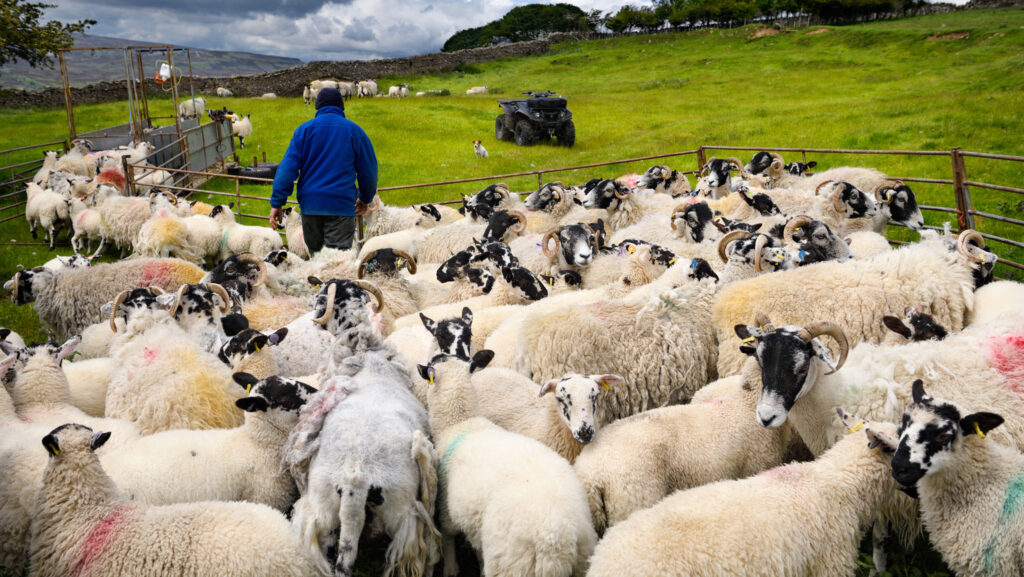Opinion: Sheep farming – a platform for sustainability
 © Adobe Stock
© Adobe Stock Few farmers tackling the challenging conditions of 2024 will question that climate change is upon us.
Most would also accept that we have serious problems with water quality in our streams and rivers. And, after a drink or two, most would decry that bird and insect life is not what it was when we were younger.
See also: 5 ways to improve flock carbon efficiency before winter
Farming has long been an easy target, and if we are honest we have played our part.
Other industries have been every bit as bad, in many cases worse, and have felt the criticisms as a result.
The past is there to learn from and if we get it right, farming can provide significant solutions and benefit operationally and reputationally in the process.
While climate change mitigation and nature and resource protection are vital, feeding ourselves healthily and securely is equally important, yet regularly taken for granted.
We still have the opportunity to get our policy and market drivers in a place to deliver more balanced, considered and holistic outcomes, but we need to think things through carefully.
Farming shouldn’t be used to allow polluting industries to continue through offsetting, or to tie up land long-term in pursuit of renewable energy – there are still plenty of rooftops to go.
Defra’s Environmental Land Management (ELM) schemes are not perfect either, but the principles and intentions are not far off the mark and there is an overriding ambition to get them to work for farmers, while delivering positive outcomes and helping to build reputations.
This is why the National Sheep Association, working in partnership with the School of Sustainable Food and Farming at Harper Adams University, produced our new report “UK Sheep Farming and the Sustainability Agenda”, launched at Sheep 2024 in July.
It encourages greater ownership of the challenges we face; argues that single metric assessments are potentially damaging; makes the case that sheep farming provides a good platform for sustainability; and identifies where, with the right signals, we could deliver more.
It also profiles many sheep farmers who are innovating, adapting, and excelling in areas such as viability, health and welfare, reducing carbon footprints, providing for nature, and much more.
We are facing some of the biggest changes in our lifetime, but farming has always coped with change.
The1930s depression broke many farmers’ lives and dreams; tractors, mechanisation and post-war agricultural policies put an end to many farming livelihoods; the Haber Bosch process drove sheep farming out of most of our arable areas, affecting rural communities immeasurably.
Transitioning through change – and being honest and evidence-based over what change is necessary and beneficial – is where our focus should be.
Survival is dependent on adaptability far more than on size, strength, aggression, or wealth – ask a dinosaur, if you can find one.
It’s incumbent on us all to consider that the time to try to get a balanced land use, farming, and food system right is now, and we await the government’s land use strategy with anticipation.
If we approach change positively, we can minimise business and human casualties, making honest, evidence-based decisions on land use, farming systems, food systems and nutrition.
Practical farmers, with their knowledge, sense of being, and commitment, are essential ingredients for strategic planning and for delivery, but this will only happen if we are all willing to take ownership and responsibility for the challenges we face.

